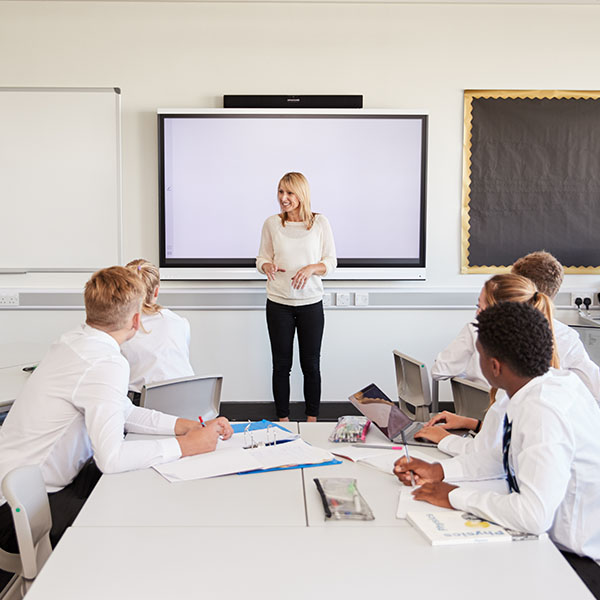September is upon us! The start of a new academic year, an exciting but stressful time for many. For your students, the key to starting on the right foot and keeping their initial good intentions going all the way to next summer will be to develop great habits.
Easier said than done? Here are our 5 top tips for students to start the year right…
-
Identify goals for the year
Arguably, the secret to success is effective goal setting. Encouraging students to create targets they would like to achieve by the end of the year helps them feel motivated and gives them something they can work towards. However, all too often, students create goals that they never look back on.
A common reason for this is that they don’t set the right goals. Some key things to include when goal setting are:
- Having both long-term and short-term goals
- Making the goals challenging yet realistic
- Focusing on the “why”
- Making it specific
- Being flexible
- Considering potential obstacles
Once students set the right goals, the next challenge they need to overcome is planning out how to achieve these goals. A common issue with this is that students focus on the destination rather than the journey, which can often cause them to deflate and lose motivation when their progress feels so slow. To remedy this, it is important that students:
- Break it down into smaller, shorter-term goals
- Reflect on their progress regularly
- Keep a journal
- Focus on what they can control
-
Develop resilient environments
To foster resilience, students need an environment which provides them with both challenge and support.
Little challenge and little support causes students to stagnate. A high level of challenge without adequate support causes stress, whereas lots of support with a low level of challenge can make students complacent and bored. Therefore, finding the right balance, although it may be difficult at first, is key to develop students’ resilience.
Some other techniques to help improve resilience within the classroom include:
- Being open to new experiences
- Being optimistic
- Viewing decisions as active choices
- Focusing on developing skills
-
Use effective learning strategies
Often, the learning strategies that students like to use aren’t actually good for them. For example, in this study, 84% of students said they re-read to revise, with 55% saying it was their favourite revision strategy. However, in a review of over 100 studies, researchers found that re-reading is not beneficial to learning.
In contrast, retrieval practice, which is the process of generating an answer to a question, was shown to be one of the most effective techniques in improving long-term memory. Some benefits of retrieval practice include:
- Identifying gaps in knowledge
- Making and strengthening connections
- Checking for understanding
Encouraging students to use this effective learning technique from the start of the year can help them get into the habit of using it and improve their learning. Some easy ways to use retrieval practice include:
- Past papers
- Multiple-choice tests
- Flashcards
-
Encourage a growth mindset
Growth mindset, the belief that one’s ability and intelligence can develop and improve, is one of the most popular psychological theories in education. And for good reason – research has consistently shown that the benefits of a growth mindset include:
- Reducing stress levels
- Increasing self-esteem
- Developing the ability to deal well with transitions
When it comes to whether students with a growth mindset get better grades, the research out there is still undecided. There are a lot of factors that play a part in answering this question. Regardless, better grades would be a bonus – developing a growth mindset already has many other benefits that are worth pursuing.
So, how can you help your students develop a growth mindset in the classroom? Well, some ways include encouraging students to:
- Not rush to “I can’t”
- Ask themselves what they would do differently next time at the end of each task
- Try out new things
-
Develop good sleep habits
Last but not least, it is important the students develop good sleeping habits from the start of the year. A consistent sleeping pattern can help students:
- Improve their concentration levels
- Enhance their memory
- Focus less on the negative
- Be more creative
However, many students won’t have fostered good sleeping habits during the holidays, staying up late at night and sleeping in in the morning. Thankfully, there are many strategies students can use to get back into a healthy sleeping pattern, such as:
- Having a regular bedtime and wake up time – even on the weekends
- Exercising for an hour a day
- Avoiding screens or turning down the brightness on their phone at night
Final Thoughts
The start of the new year is a great time to set out key habits that will benefit students throughout the year. Setting the right goals, developing a growth mindset, being resilient, using effective learning strategies and having good sleep habits can help students flourish throughout the rest of the year.







